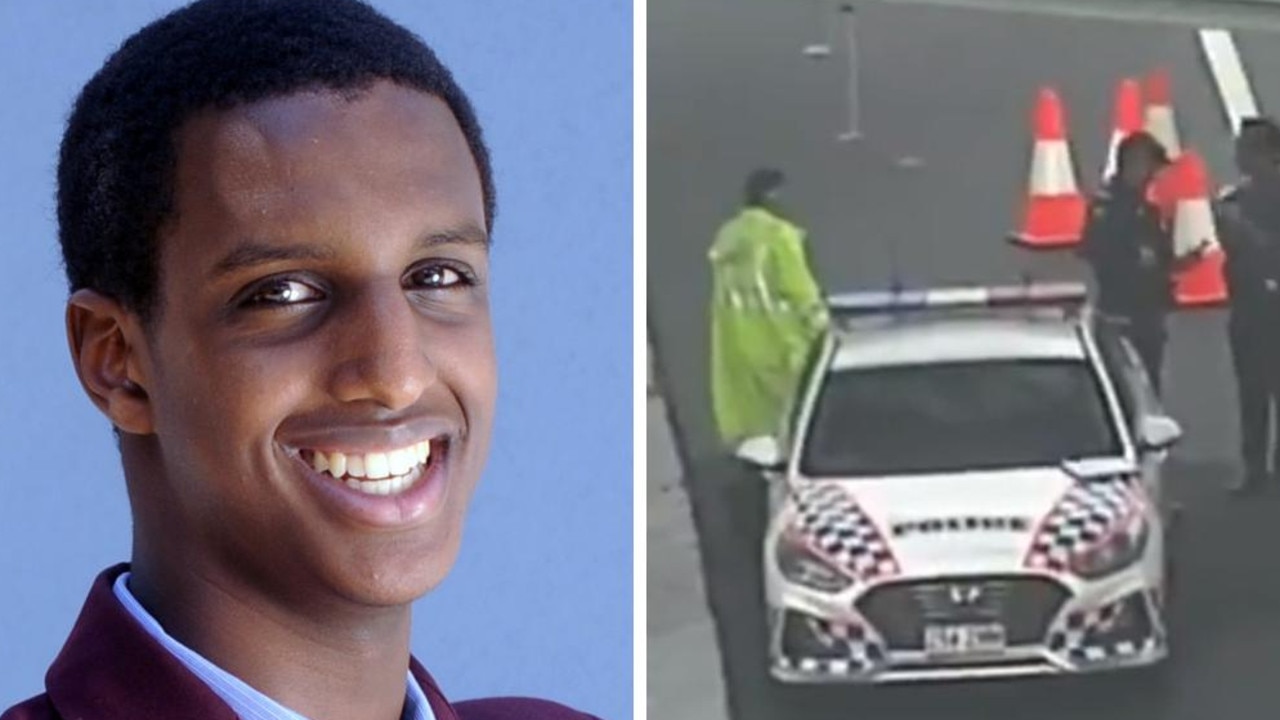‘We’re still finding bodies’: Dozens killed after trains collide in Greece
Shocking footage has emerged of the moment two trains collided head-on in Greece, killing at least 43 people. See the video.
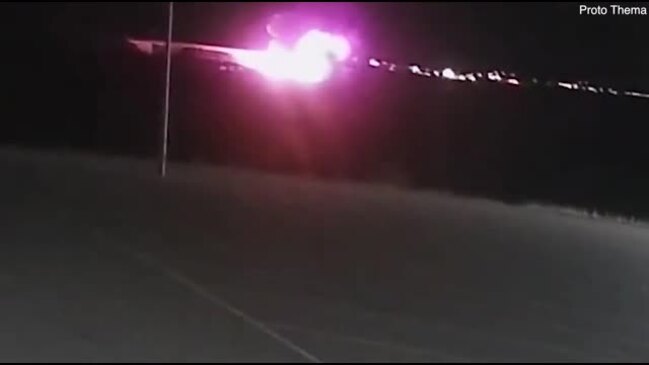
World
Don't miss out on the headlines from World. Followed categories will be added to My News.
Shocking CCTV footage has emerged of the moment two trains crashed head-on in Greece, killing at least 43 people.
The camera overlooks a stretch of the railway. At first the footage is dark but then suddenly a bright spark appears before erupting into an explosion, lighting up the night sky for several seconds.
The video ends with what appears to be smoke and flames billowing at the crash site.
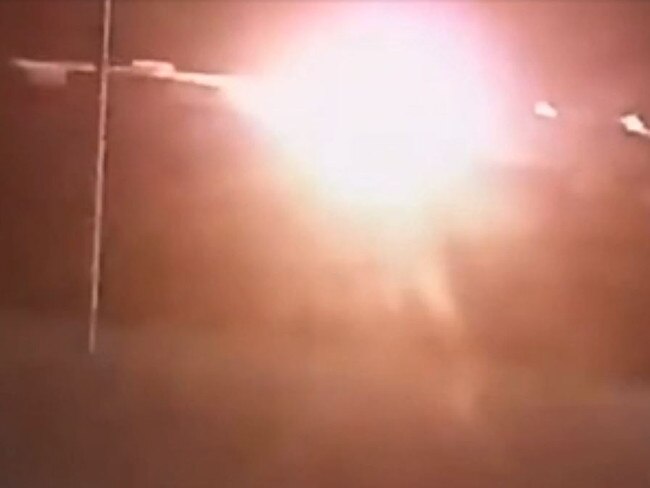
At least 43 people have been killed and many more are still missing after two trains collided head-on “due to tragic human error”, in Greece’s worst rail tragedy in decades.
Two carriages were crushed and a third engulfed in fire when a passenger train and freight train collided on a route plagued by years of safety warnings in the central city of Larissa.
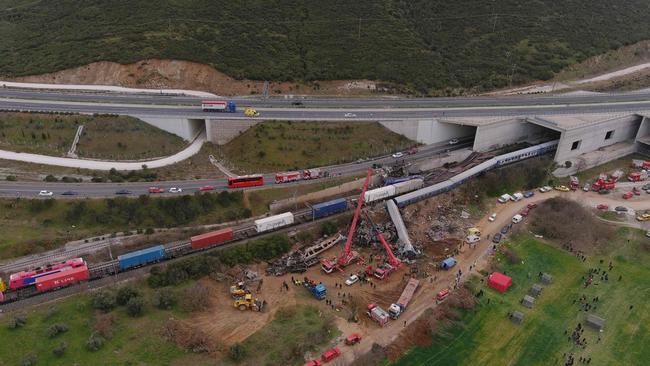
At least 85 people were injured in the accident, which left a tangled mess of metal and shattered glass in a field. Six of them are in intensive care.
It is not yet known if any Australians have been caught up in the disaster. News Corp Australia has contacted the Department of Foreign Affairs for comment.
Health Minister Thanos Plevris said most passengers were “young people”, with the train carrying many students returning to Thessaloniki after a long holiday weekend.
Transport Minister Kostas Karamanlis has resigned, saying he felt it was his “duty” to step down “as a basic indication of respect for the memory of the people who died so unfairly”.
The stationmaster in the city of Larissa has been arrested over the head-on collision, police said.
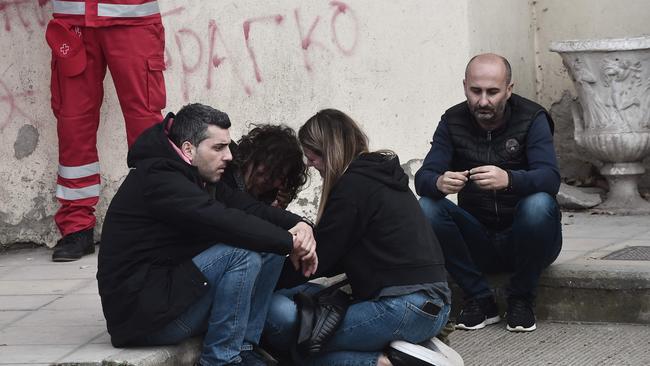
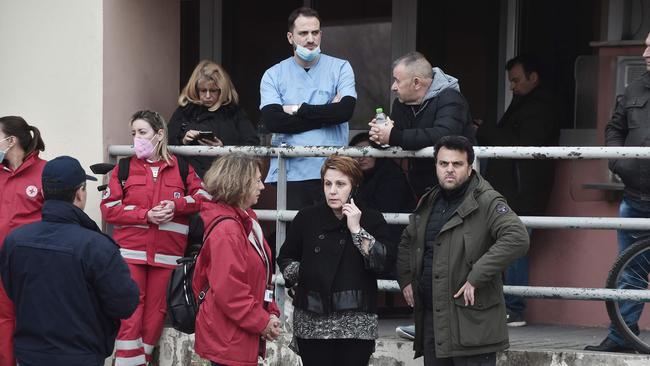
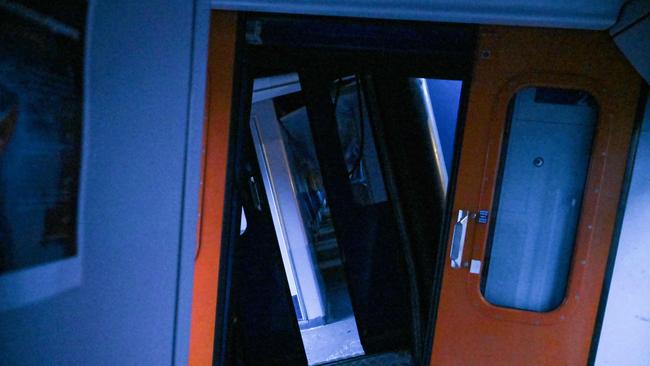
“I’ve never seen anything like this in my entire life,” said one rescue worker, emerging from the wreckage.
“It’s tragic. Five hours later, we are finding bodies.”
In some cases, passengers are being identified from body parts, volunteer fireman Vassilis Iliopoulos told Skai TV, warning that the death toll would rise.
“It was the train of terror,” Pavlos Aslanidis, whose son is missing along with a friend, told reporters.
The fatal train collision was due “to tragic human error”, Greece’s Prime Minister Kyriakos Mitsotakis said on Wednesday.
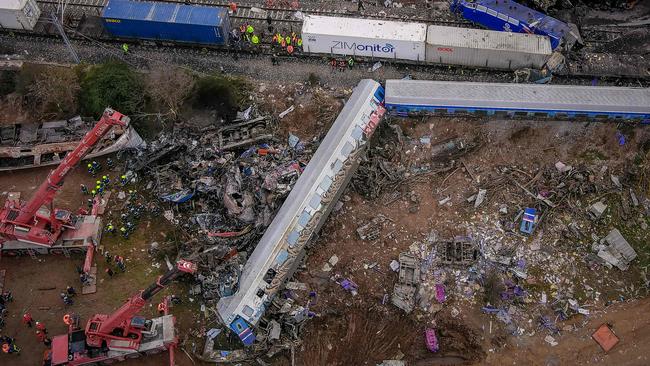
‘TRAGIC HUMAN ERROR’
The passenger train, carrying over 350 people, had been travelling from the capital Athens to the northern city of Thessaloniki.
The 59-year-old station master of Larissa was arrested several hours after the accident and charged with negligent homicide.
Government spokesman Yiannis Economou said the two trains were left running on the same track for “several kilometres.” But train unionists said the station master was likely a scapegoat as the safety shortcomings of the Athens-Thessaloniki railway line had been known for years.
In an open letter in February, train staff said track safety systems were incomplete and poorly maintained.
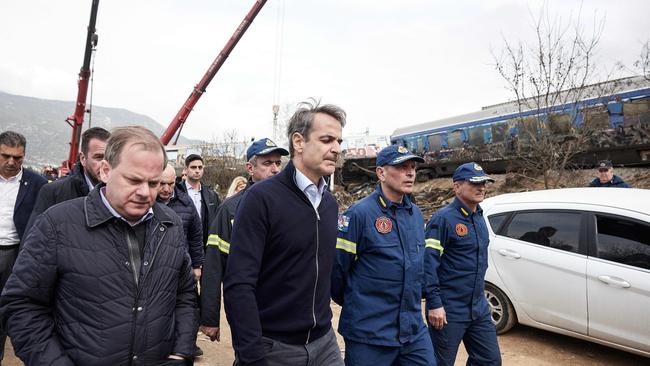
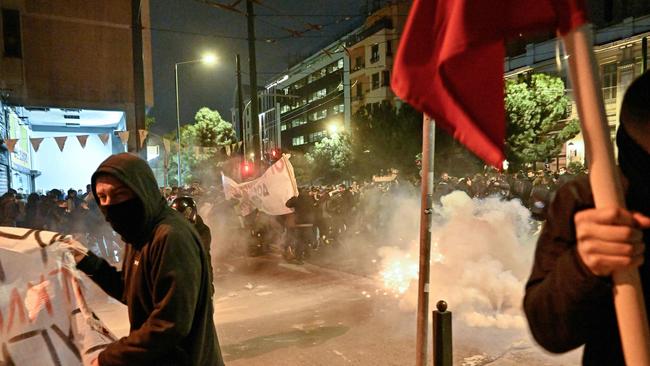
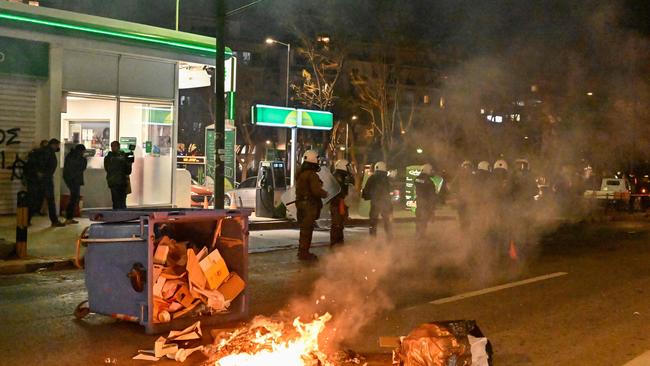
A safety supervisor had resigned last year, warning that infrastructure upgrades pending since 2016 were incomplete and that train speeds of up to 200 kilometres an hour were unsafe.
“We will do whatever we can so that nothing like this ever happens again,” Mr Mitsotakis, who was expected to announce an early election date next week, said at the scene.
“It is very difficult what we are experiencing today as a country. We are talking about an unspeakable tragedy.
“One thing I can guarantee: we will find out the causes of this tragedy and do everything in our power to make sure this never happens again.”
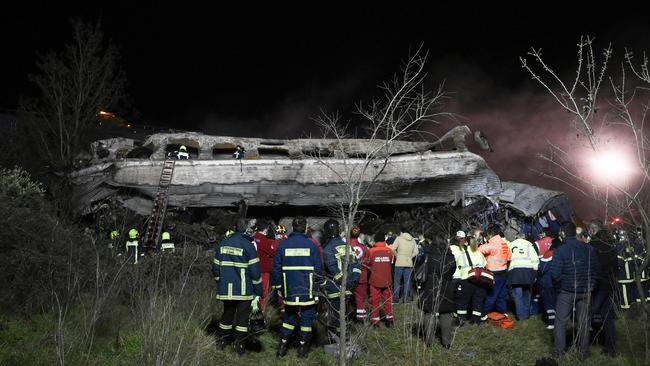
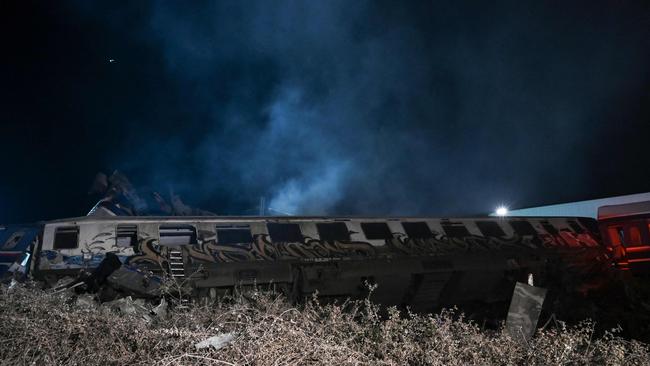
In a televised address following his return from the crash site near the city of Larissa on Wednesday, Mr Mitsotakis said that the decision of the Greek Transport Minister to resign in the wake of the tragedy was honourable.
“His stance honours him, as everything shows that the drama is unfortunately due to mainly tragic human error,” Mr Mitsotakis said, adding that the heads of Hellenic Railways Organisation (OSE) and its subsidiary ERGOSE have also submitted their resignations.
The Greek Prime Minister said that during his visit at the hospital in Larissa, where many of the injured are being treated, he met relatives of the dead and the missing. “They asked me ‘why.’ And they told me ‘never again.’ We owe them an honest answer,” he said.
‘COMPLETE PANIC’
“It was a nightmare … I’m still shaking,” 22-year-old passenger Angelos told AFP.
“Fortunately we were in the penultimate car and we got out alive. There was a fire in the first cars and complete panic.” “The collision was like a huge earthquake.”
“I was stained with blood from other people who were injured near me,” a passenger named Lazos told the newspaper Proto Thema.
Some 150 firefighters and 40 ambulances were mobilised for the response, according to Greek emergency services.
Crews were still struggling to lift one of the smashed carriages, lying on its side, to enable a search inside, Iliopoulos said.
“My thoughts are with the people in Greece this morning,” tweeted the head of the European Council, Charles Michel.
“Shocked by the news and images of the collision of the two trains,” he added.
Neighbouring Albania, Italy, Serbia and Turkey were among states to send condolences, as did France, Russia, Ukraine, Germany, and the Vatican.
Nicosia said two Cypriots were among the missing.
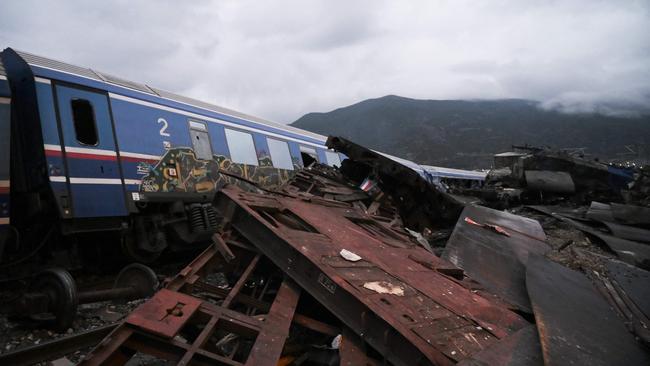
‘WINDOWS EXPLODED’
On the local media site Onlarissa, a young woman said that the train “was stopped for a few minutes when we heard a deafening noise”.
Another passenger told Skai TV that “the windows suddenly exploded. People were screaming.”
“Fortunately, we were able to open the doors and escape fairly quickly. In other wagons, they did not manage to get out, and one wagon even caught fire,” he added.
The president of the train drivers’ union Kostas Genidounias told AFP from the scene that the accident “would have been avoided if the safety systems were working”.
An emergency government meeting was organised after the crash and military hospitals in Thessaloniki and Athens have been put on standby.
Authorities have declared three days of national mourning.
– With AFP




